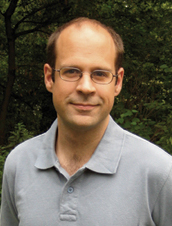The Public Ownership Option
[This is an e-mail I sent yesterday to a mailing list of commissioners, activists, and other interested citizens. Councilmember Hjelle had previously sent a message laden with inaccuracies to this list, and several of the recipients had forwarded it to me. I thought it would be good to post my message here as well, for anyone interested to see.]
Folks,
Apparently some false information is being spread around by Councilmember Hjelle.
Among other tall tales, Mr. Hjelle wrote, “The sad reality is that our new council majority has no interest in addressing the concerns of the Moratorium and the area impacted by the COPAR development. That is why the issue is efectively [sic] dead, and why the moratorium is being allowed to simply end.”
The moratorium is ending because the city council lacks legal authority to extend it further. I brought this up at the January 28th council meeting, specifically because I was concerned about development occurring between the expiration of the moratorium and the adoption of any action based on the study findings.
In case anyone needs proof, I went back to the DVD of this meeting, excerpted the relevant portion of the discussion, and put it on YouTube:
You can see me ask, and Mr. Ahl and Mr. Kantrud answer quite clearly that we have extended the moratorium as far as the law allows. You can also see on the video that Mr. Hjelle was present to receive the same information. You'd have to ask him why he would lie to you all about this.
In terms of my interest in addressing the concerns of the moratorium area, I hope it's obvious that Mr. Hjelle does not speak for me and fails to accurately depict my views.
As I learned about the issues in the moratorium study area, I became interested in ways to preserve ecologically sensitive land there, and I came to appreciate how highly valued the land is in the eyes of the members of the original open space task force as well as south leg neighbors. I also am aware of the issues of property rights, ongoing litigation, and the complexities of land use planning. Finally, I worry that the solution some favor – of keeping 2-acre minimum lots – is no solution at all for the long term, even if it is something the city could maintain. Do we really want all those septic systems uphill from Fish Creek?
The only way to really preserve the ecological value of the land around Fish Creek is public ownership. This is not something the city could pay for out of petty cash, especially with the financial situation we've inherited. The original open space referendum money, of course, was long ago spent on other land. This means that the city would have to issue bonds. A referendum would be required and a majority of voters would have to support the borrowing.
I am asking city staff for information on the process by which such a referendum could be accomplished. In the meantime, interested folks can get a start by reading a section of the Handbook for Minnesota Cities, Chapter 24: Debt and Borrowing (look at “Voter Approval” on pages 7-8 of this document).
If certain members of the council are interested in actually doing something for Fish Creek, rather than just trying to exploit it as a political wedge as they did last year, then we might get the votes in the council necessary to authorize a bond question on the ballot.
Then it's up to the citizens. The League of Minnesota Cities warns, “City officials should be careful not to endorse or campaign in favor of the bond election. Any published materials should be confined to factual statements about the project to be financed. Campaigning should be left to citizen’s groups.” (This comes from an Attorney General's opinion.) Fortunately, we may already have such a citizen's group in the form of the Fish Creek Initiative.
While bonding to buy more open space may be a tough sell with the electorate, especially in this economic downturn, we do live in a community that puts a very high value on our environment, our parks, and our neighborhood preserves. A ballot question would give citizens and activists who want to protect Fish Creek and its environs the chance to take their case directly to the voters, to persuade them that this is an investment that is worth making for Maplewood's future.
Sincerely,
John Nephew, Councilmember
Folks,
Apparently some false information is being spread around by Councilmember Hjelle.
Among other tall tales, Mr. Hjelle wrote, “The sad reality is that our new council majority has no interest in addressing the concerns of the Moratorium and the area impacted by the COPAR development. That is why the issue is efectively [sic] dead, and why the moratorium is being allowed to simply end.”
The moratorium is ending because the city council lacks legal authority to extend it further. I brought this up at the January 28th council meeting, specifically because I was concerned about development occurring between the expiration of the moratorium and the adoption of any action based on the study findings.
In case anyone needs proof, I went back to the DVD of this meeting, excerpted the relevant portion of the discussion, and put it on YouTube:
You can see me ask, and Mr. Ahl and Mr. Kantrud answer quite clearly that we have extended the moratorium as far as the law allows. You can also see on the video that Mr. Hjelle was present to receive the same information. You'd have to ask him why he would lie to you all about this.
In terms of my interest in addressing the concerns of the moratorium area, I hope it's obvious that Mr. Hjelle does not speak for me and fails to accurately depict my views.
As I learned about the issues in the moratorium study area, I became interested in ways to preserve ecologically sensitive land there, and I came to appreciate how highly valued the land is in the eyes of the members of the original open space task force as well as south leg neighbors. I also am aware of the issues of property rights, ongoing litigation, and the complexities of land use planning. Finally, I worry that the solution some favor – of keeping 2-acre minimum lots – is no solution at all for the long term, even if it is something the city could maintain. Do we really want all those septic systems uphill from Fish Creek?
The only way to really preserve the ecological value of the land around Fish Creek is public ownership. This is not something the city could pay for out of petty cash, especially with the financial situation we've inherited. The original open space referendum money, of course, was long ago spent on other land. This means that the city would have to issue bonds. A referendum would be required and a majority of voters would have to support the borrowing.
I am asking city staff for information on the process by which such a referendum could be accomplished. In the meantime, interested folks can get a start by reading a section of the Handbook for Minnesota Cities, Chapter 24: Debt and Borrowing (look at “Voter Approval” on pages 7-8 of this document).
If certain members of the council are interested in actually doing something for Fish Creek, rather than just trying to exploit it as a political wedge as they did last year, then we might get the votes in the council necessary to authorize a bond question on the ballot.
Then it's up to the citizens. The League of Minnesota Cities warns, “City officials should be careful not to endorse or campaign in favor of the bond election. Any published materials should be confined to factual statements about the project to be financed. Campaigning should be left to citizen’s groups.” (This comes from an Attorney General's opinion.) Fortunately, we may already have such a citizen's group in the form of the Fish Creek Initiative.
While bonding to buy more open space may be a tough sell with the electorate, especially in this economic downturn, we do live in a community that puts a very high value on our environment, our parks, and our neighborhood preserves. A ballot question would give citizens and activists who want to protect Fish Creek and its environs the chance to take their case directly to the voters, to persuade them that this is an investment that is worth making for Maplewood's future.
Sincerely,
John Nephew, Councilmember
Labels: environment, finance, process, video


Post a Comment